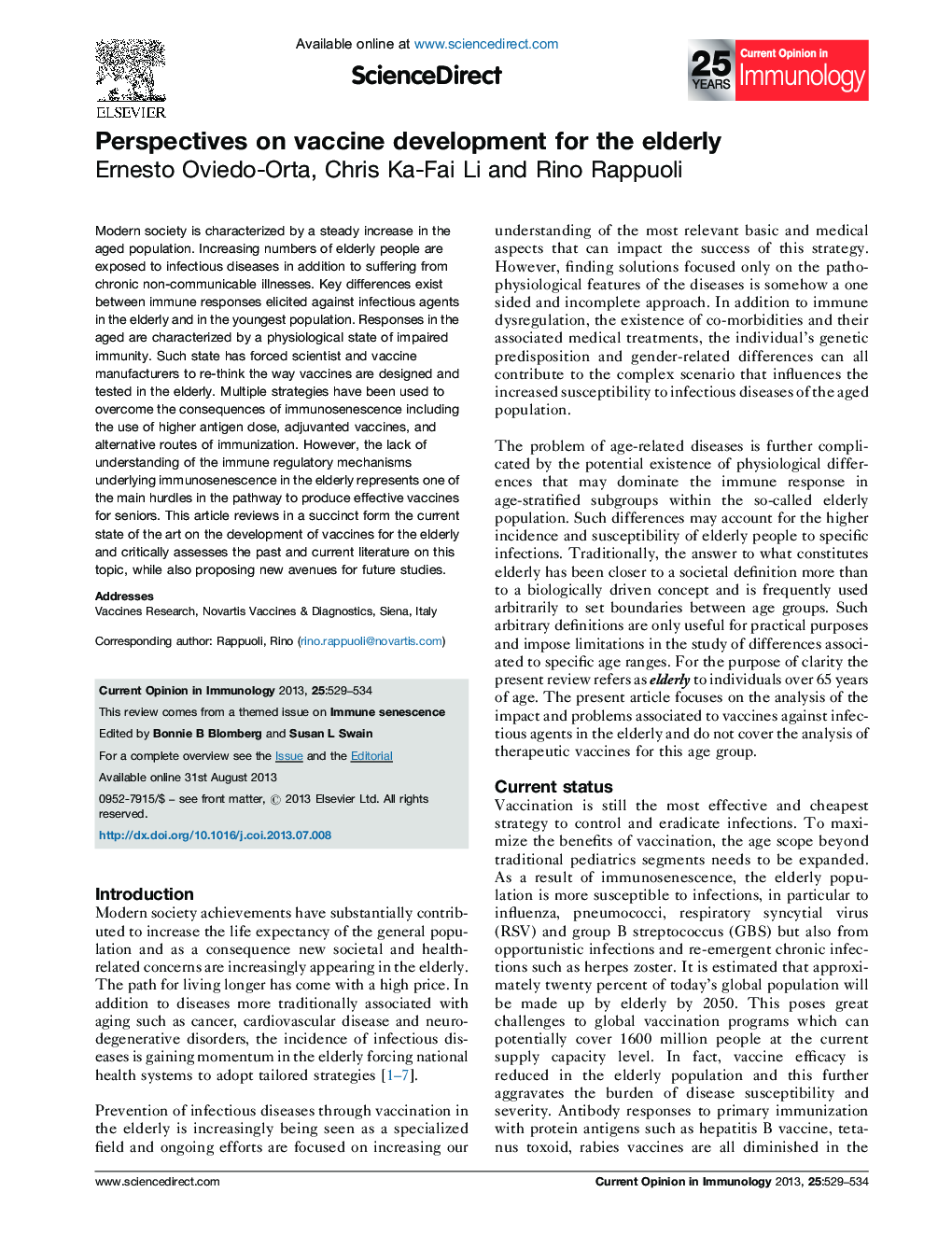| Article ID | Journal | Published Year | Pages | File Type |
|---|---|---|---|---|
| 6115103 | Current Opinion in Immunology | 2013 | 6 Pages |
Abstract
Modern society is characterized by a steady increase in the aged population. Increasing numbers of elderly people are exposed to infectious diseases in addition to suffering from chronic non-communicable illnesses. Key differences exist between immune responses elicited against infectious agents in the elderly and in the youngest population. Responses in the aged are characterized by a physiological state of impaired immunity. Such state has forced scientist and vaccine manufacturers to re-think the way vaccines are designed and tested in the elderly. Multiple strategies have been used to overcome the consequences of immunosenescence including the use of higher antigen dose, adjuvanted vaccines, and alternative routes of immunization. However, the lack of understanding of the immune regulatory mechanisms underlying immunosenescence in the elderly represents one of the main hurdles in the pathway to produce effective vaccines for seniors. This article reviews in a succinct form the current state of the art on the development of vaccines for the elderly and critically assesses the past and current literature on this topic, while also proposing new avenues for future studies.
Related Topics
Life Sciences
Immunology and Microbiology
Immunology
Authors
Ernesto Oviedo-Orta, Chris Ka-Fai Li, Rino Rappuoli,
